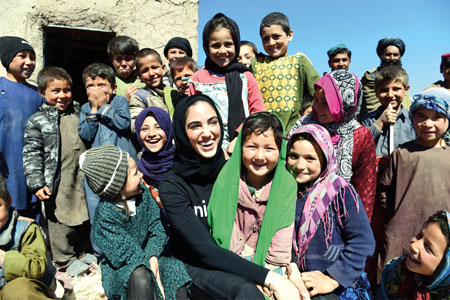The United Nations Children’s Fund (UNICEF) in Afghanistan said that supporting teachers will help students grow and learn in Afghanistan.
“When teachers are appropriately supported, children thrive. Thanks to (South Korea’s Ministry of Foreign Affairs) for donating $5 million, which will enable UNICEF Afghanistan to improve children’s learning outcomes through better-prepared & supported teachers in Afghanistan,” UNICEF Afghanistan tweeted.
UNICEF Afghanistan said on Twitter page that South Korea and Denmark have contributed a total of ten million dollars to support teachers in Afghanistan.
“With support from our donors, UNICEF Afghanistan is expanding community-based learning spaces (CBEs) for the most vulnerable boys & girls. We are grateful for Danish MFA US$5M contribution to establish 600 new CBEs & support 275 existing ones,” UNICEF Afghanistan tweeted.
Meanwhile, some teachers said that their monthly pay was insufficient to meet their family’s needs, adding that they are facing economic difficulties.
“We welcome this move, if money is given to them in such a way that the teachers’ shelter and their home needs are met and their lives continue to be normal,” said Ahmadzai Ahmadi, a teacher.
“Give them enough salaries so that at least the teachers can feed their families and themselves on a daily basis and find a peaceful spirit so that they can teach the students,” said Abdul Nasir, another teacher.
Some teachers said that low pay forced them to switch careers or turn to private schools.
Meanwhile, the Ministry of Higher Education said it has recently created the Faculty of Islamic Law in universities across seventeen Afghan provinces.
Abdul Baqi Haqqani, minister of higher education, added that the subject of Islamic culture in universities has increased from 18 credits to 24 credits.
“Based on the proposal of the Ministry of Higher Education and acceptance of the leadership, the theme of Islamic culture has been enriched in this section compared to the past. A strong curriculum has been established for it, and three days a week have been selected for it,” Haqqani said.
“This decision has been taken in accordance with the national and Islamic values of the country’s society,” said Abdurauf Farahi, the Ministry of Higher Education’s director of curriculum.
Meanwhile, some university professors asked the international community to cooperate with the private universities to upgrade the education curriculum of private universities.
“They should create laboratories for us to conduct those things that we cannot do without laboratories, and help us in the academic curriculum,” said Noor Zaman Bawari, a university lecturer.









